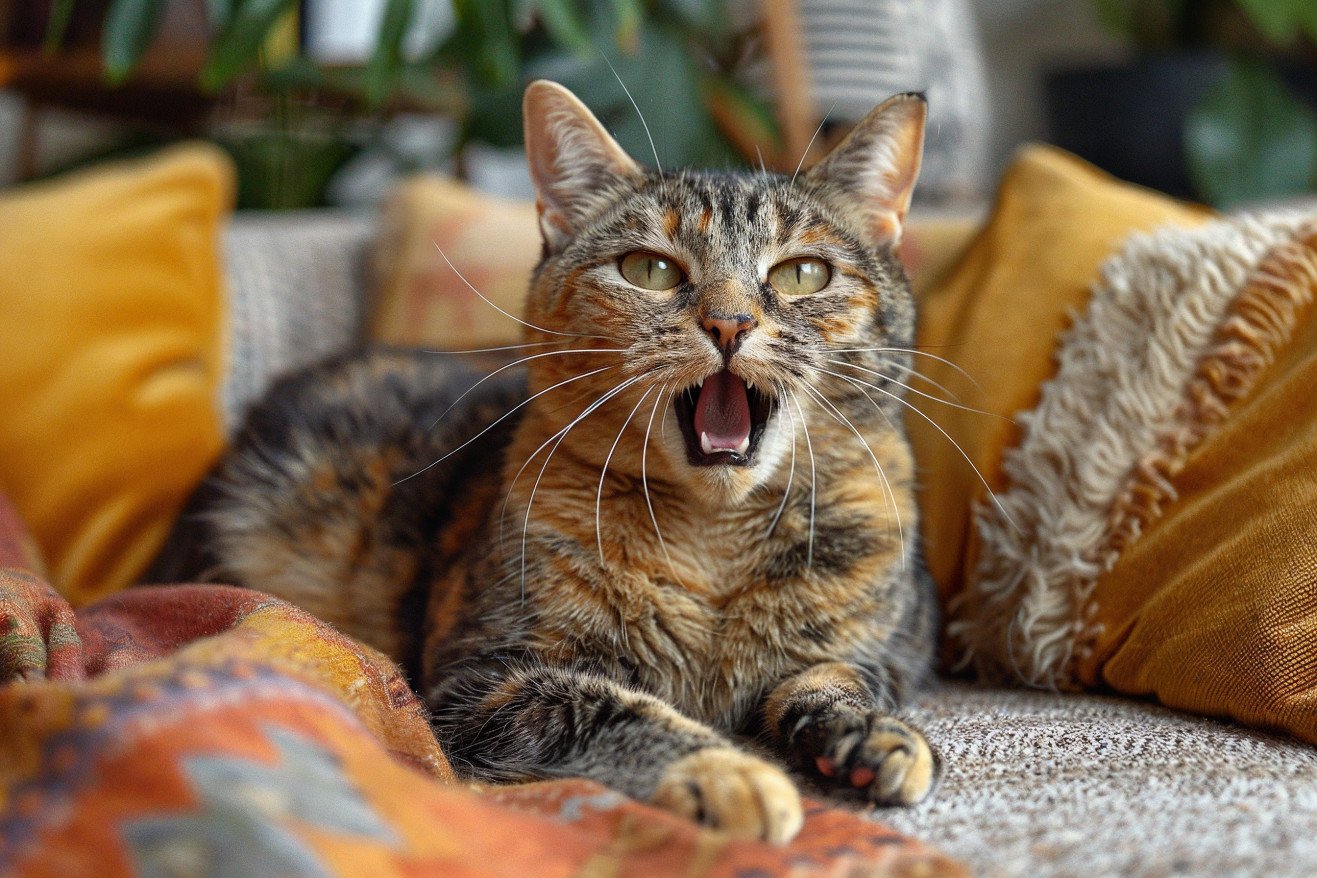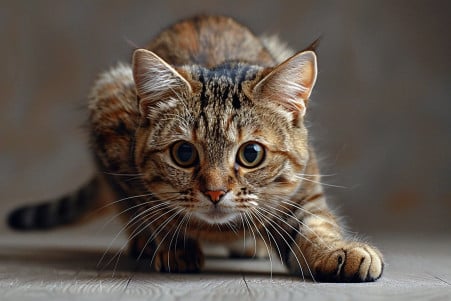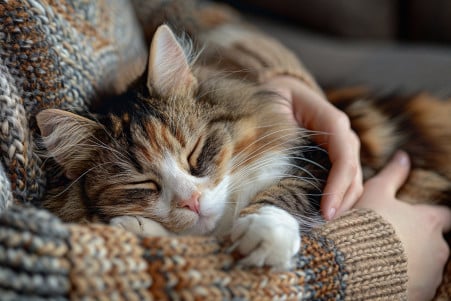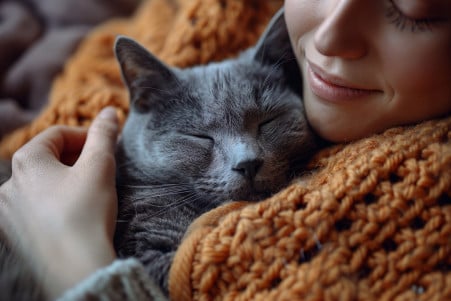Why Is My Spayed Female Cat Yowling? Causes and Solutions
10 May 2024 • Updated 9 May 2024

Spayed female cat owners may be especially confused when their pets start yowling since this vocalization can be caused by medical issues, behavioral issues, and even hormonal imbalances after the cat has been spayed. Medical reasons for yowling in spayed female cats include hormonal changes, ovarian remnants, and issues like urinary tract infections, while behavioral causes include attention-seeking, anxiety, and even being in heat due to ovarian remnants after spaying.
By reviewing scientific research and talking to experts, we'll cover the potential reasons for this unexpected behavior in spayed female cats, helping you understand the medical, hormonal, and emotional issues that can lead to yowling and enabling you to better support your cat's health.
Why is my spayed female cat yowling?
Hormonal Imbalances and Ovarian Remnants: Addressing the Root Cause
Spaying a female cat removes the ovaries, which produce hormones such as estrogen and progesterone. However, in some cases, a small amount of ovarian tissue may be left behind, causing hormonal imbalances and residual heat cycles, according to Preventive Vet. This is known as ovarian remnant syndrome, and it can lead to yowling, restlessness, and other heat-related behaviors, according to an article on WagWalking.com.
Veterinary examination and diagnostic tests may be necessary to diagnose ovarian remnants or hormonal imbalances. Catster explains that hormonal changes won't happen immediately after a cat is spayed, and it could take weeks or even months for your cat's hormones to level out. Treatment options include exploratory surgery to remove any remaining ovarian tissue, which can result in a positive prognosis according to WagWalking. On the other hand, hormone therapy to regulate hormonal levels using corticosteroids may be recommended, especially if an adrenal condition is suspected as per WagWalking.
Medical Conditions and Pain: Ruling Out Underlying Issues
Yowling may be due to pain or discomfort in cats, which can be a sign of an underlying medical condition, according to WebMD. Some common medical problems that may cause yowling are urinary tract infections, arthritis, dental issues, or gastrointestinal problems. In addition, older cats may yowl due to cognitive dysfunction, dementia, or other age-related issues, according to a discussion on JustAnswer.
A full veterinary workup, including blood tests and other diagnostic procedures, can help determine and treat any medical issues that may be causing the yowling, according to TNAH. Once any underlying medical problems are treated and managed, the yowling should stop. However, if the yowling is due to pain, labored breathing, sudden changes in behavior, or other serious symptoms, it's important to take your cat to the vet immediately.
Behavioral Causes and Management: Attention-Seeking and Anxiety
The ASPCA explains that yowling can be a learned form of attention-seeking behavior in cats, especially if a cat has found that meowing and yowling gets a response from their human. Meanwhile, the folks at Preventive Vet point out that stress, anxiety, and environmental changes can also lead to excessive vocalization and yowling in cats.
In addition to ensuring that your cat's needs are met, including playtime and mental stimulation, Rover.com recommends providing environmental enrichment, such as toys, scratching posts, and vertical spaces, to help prevent or reduce boredom and anxiety. Meanwhile, Rover.com notes that a consistent routine and the use of calming pheromones or supplements can help reduce stress-related yowling.
In cases of severe anxiety or attention-seeking behavior, it may be necessary to work with a feline behavior specialist, according to Preventive Vet. However, when managed properly, excessive yowling due to behavioral causes can be effectively addressed.
Nighttime Meowing: How to Get a Good Night's Sleep
Nighttime meowing can be especially disruptive to cats and their human families, causing sleep disturbances. To help prevent this, North Hampton Animal Hospital recommends playing with your cat before bed to help them expend energy and fulfill their natural hunting instincts.
In addition, Modkat and Purina suggest creating a restful sleep environment, using pheromone diffusers, and gradually changing your cat's sleep routine. It's also important to make sure any medical or behavioral causes of the meowing are addressed.
To ensure this happens, North Hampton Animal Hospital and Modkat recommend working with a veterinarian or a feline behaviorist to identify and treat the cause of your cat's nighttime meowing. With the right interventions, you can help your cat meow less at night and get a better night's sleep for yourself.
Patience and Perseverance: How to Deal With Yowling in the Long Term
Dealing with yowling in spayed female cats will likely require patience and perseverance because it may take a while to figure out and solve the root cause. Hormonal imbalances and ovarian remnants may need to be treated with surgery or hormone therapy, and it may take time for the treatment to work. Behavioral problems like attention-seeking or anxiety may require ongoing training and changes to the cat's environment.
Working with a vet or a cat behaviorist can help you stay on track and get the support you need to deal with the issue. With the right treatment and attention, excessive yowling can be managed or resolved, which will make for a happier, more peaceful living situation for both the cat and the owner.


